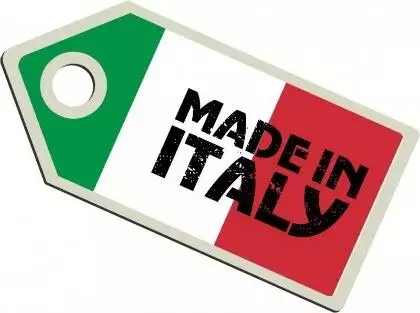Jocurile Olimpice Jocurile olimpice reprezintă mai mult decât o simplă descoperire; jocurile olimpice sunt un adevărat fenomen. Acestea găzduiesc participanţi din peste 165 de ţări din întreaga lume. Jocurile Olimpice s-au desfăşurat pentru prima dată pe terenurile oraşului Olimpya din Grecia Antică, în 776 Î.Hr. The Olympic Games Olympic games are more than just a mere discovery, they are a global phenomenon. The Olympic games host participants of more than 165 countries around the world. The first record of the Olympics being played was on the big and wide plains of Olympia in ancient Greece in 776 B.C. Jocurile Olimpice se desfăşurau sub formă de maraton sau de lupte corp la corp (wrestling), organizate în cinstea lui Zeus, zeul suprem al Greciei. Aceste jocuri se desfăşurau pe o perioadă de o zi, apoi în 472 Î.Hr noi jocuri au fost introduse, ceea a dus la prelungirea perioadei de susţinere a competiţiei de la o zi la 5 zile.Mare parte din jocurile olimpice de azi au fost inspirate de jocurile antice greceşti. Jocurile menţionate anterior rămân totuşi cele mai populare jocuri greceşti organizate şi azi. Bani Conceptul de bani este considerat ca fiind unul din cele mai mari descoperiri din istoria omenirii. Încă dinainte de introducerea schimburilor sub formă de troc din India, o parte a populaţiei din Grecia antică cunosctăi sub numele de “lydieni” foloseau bucăţii rotunde de metal ce reprezentau monezile de schimb pentru negoţ, ceea ce îi face recunoscuţi pe greci ca poporul ce a descoperit banii. Hărţi Cercetările au demonstrat că hărţile au fost realizate pentru prima oară în anul 6200 Î.Hr, în literatura vestică. Primul savant grec care a inventat o astfel de hartă geografică a fost Anaximander (610-546 Î.Hr.), iar conceptul de latitudine şi longitudine a fost introdus pentru prima oară de către geograful grec Dikaiarch (350-290 Î.Hr.). Hărţile reprezintă una din cele mai vechi invenţii greceşti folosite astăzi. Termometrul Istoricii susţin că grecii din Alexandria ştiau că atunci când aerul se încălzeşte, se dilată, iar Philo din Bizanţ a inventat termometrul, ale cărui principii de funcţionare erau asemănătoare cu cele ale termometrului lui Galileo, însă cel din urmăa fost cel care a pus scala de temperatură lângă tub, astfel transformând termometrul într-un instrument ştiinţific, ce măsoară diferenţa dintre temperatură şi căldură. Motorul cu aburi Heron, cunoscut sub denumirea de Hero, inginer savant grec, ce a trăit în primul secol d.Hr. a inventat motorul cu aburi, sub forma unei jucării cu denumirea de “aeolipile”. Aburul era generat de o oală plină cu apă, acoperită pe foc; oala era conectată la două tuburi ce colectau aburul ce permiteau astfel colectarea într-o bilă de metal. Bila metalică era prevăzută cu două dispozitive de evacuare a aburului. Pe măsură ce aburul trecea de aceste tuburi, bila metalică se rotea. În 1698, folosind ca sursă de inspiraţie motorul cu aburi al lui Heron, Thomas Savery l-a construit din nou. Matematică „Într-un triunghi dreptunghicsuma pătratelor catetelor este egală cu pătratul ipotenuzei”; aceasta este cea mai faimoasă teoremă din întreaga lume, teorema lui Pitagora, propusă de filozoful şi matematicianul grec Pitagora (582-500 Î.Hr.). Această teoremă a reprezentat un real punct de plecare în ştiinţele matematicii, geometriei şi astronomiei. Profesorul lui Pitagora, matematicianul Thales a descoperit prima deducţie matematică şi a dezvoltat ştiinţa numerelor iraţionale şi a teoriei axiomatice. Prima lucrare de geometrie a fost scrisă de matematicianul grec Euclid în anul 300 Î.Hr. Jurământul lui Hipocrate Medicul grec Hipocrate (460-377 Î.Hr), cunoscut şi ca tatăl medicinei moderne a scris “Jurământul lui Hipocrate” renumit în întreaga lume. Acest jurământ le interzicea doctorilor să facă avorturi şi operaţii inutile, şi de asemenea le interzicea acestora să aibă relaxii sexuale cu pacienţii. Conform jurământului era interzisă divulgarea oricărei informaţii împărtăşite doctorului. Acest jurământ a fost impus obligatoriu tuturor doctorilor, până în anul 1948, când Organizaţia Mondială a Sănătăţii l-a interzis şi l-a reformulat în varianta modernă cu denumirea de„Declaraţia de la Geneva”. Medicină George Papanicolau (1883-1962), medic greco-american a fost primul medic care a depistat cancerul cervical în anul 1943 printr-o procedură ginecologică cunoscută cu denumirea de “ Test Papanicolau”, test denumit după numele său. Teatru şi Muzică Teatrul a luat naştere în Grecia Antică din nevoie de a potretiza calităţi precum patriotismul, respectul faţă de zei, egalitatea şi ospitalitatea; insuflând astfel şi copiiilor aceste însușiri. Teatrul a devenit un adevărat ritual în anul 6 Î.Hr., când au început să performeze în grupuri pentru a culturaliza populaţia. Thespis (actor), în timpul unei reprezentaţii în grup a început deodată să joace piesa de unul singur, astfel dând naştere pieselor de teatru jucate de un singur actor. Oamenii Greciei Antice erau iubitori înflăcăraţi de artă. În 468 Î.Hr. scriitorul Sofocle a scris r tragedia “Oedip Rege”,considerata capodopera literaturii antice grecesti. Încă din timpuri străvechi grecii au avut o predilecţie pentru muzică. Au inventat instrumente muzicale precum naiul, ce a stat la baza invenţiei flautului. Cel mai mare compozitor al Greciei este Michael Theodorakis, care a câştigat prin intermediul capodoperelor Epifania şi Zorba recunoaşterea la nivel global. Şurubul lui Arhimede Matematicianul grec Arhimede (287-212 Î.Hr.) a inventat pompa de apă cunoscută la nivel global cu denumirea de “Şurubul lui Arhimede”. Acesta este compus dintr-un tub spiralat în jurul unui tor, fixat la un unghi cu partea de jos în apă şi dotat cu un mâner la capăt. Când mânerul era rotit, întregul dispozitiv se întorcea în sus, iar apa era colectată în tub, fiind apoi transportată în sus.Ahimede a mai inventat şi pârghia în anul 260 Î.Hr. O mulțime din instrumnetele pe care le folosim, precum cleştii, spărgătorul de nuci sau foarfecele se bazează pe principiile lui Arhimede. Astronomie Grecii au dezvoltat astrolabul, instrument utilizat pentru măsurarea poziţiei aştrilor, astfel aducând o contribuție valoroasă în domeniul astronomiei. Astrolabul a fost folosit pentru prima dată în anul 200 Î.Hr., în Grecia, de către astronomii greci. Umbrela Grecii foloseau lemn şi oase mari de animale pentru a se proteja de soare şi de ploaie. Mai târziu aceştia au folosit frunze mari; astfel punând bazele invenţiei ce au dus la crearea umbrelei. În anul 1852, inventatorul britanic Samuel Fox a inventat spiţele metalice ale umbrelei pe care o folosim şi azi. Ceasul cu alarmă Da, grecii au fost cei care au venit cu ideea de a face un ceas cu alarmă. Acesta a fost creat în anul 200 Î.Hr. de către Ctesibius (285-222 Î.Hr.). Tradiţionalul ceas cu alarmă a fost realizat dintr-un cadran gradat şi o limbă care să indice timpul şi a fost dotat cu un sistem de alarmă care dădea drumul unor pietricele într-un instrument special care producea sunete la o oră presetată. Vapoare Greci au adus mari contribuţii şi în industria navală. Prima ancoră a fost inventată de către Eupalmas şi a fost realizată din lemn. În anul 592 Î.Hr. Anacharsis a inventat prima ancoră realizată din fier. These games were played in honor of their prime Greek God Zeus and it featured events such as running and wrestling. These games lasted for an entire day, then in 472 B.C. new games were added and the event was extended to five days. Olympics today have drawn a lot of inspiration from this rich heritage. This remains one of the most popular Greek inventions used today. Money The concept of money is considered as one of the greatest discoveries in the history of mankind. Even before the barter services were introduced in ancient India, a part of ancient Greek people known as the Lydians were using circular metal pieces, the ancient Greek coins for trade which credits the Greeks with the discovery of money. Maps Research has shown that maps in the western literature were first produced in 6200 B.C. The first Greek scholar to invent a geographical map was Anaximander (610-546 BC) and the concept of longitude and latitude was introduced by a Greek geographer called Dikaiarch (350-290 BC). Maps are one of the most ancient Greek inventions that are used today. Thermometer Historians claim that ancient Greeks of Alexandria knew that when air is heated it expands and Philo of Byzantium who was alive when Christ was born invented the thermoscope; which had a similar concept like Galileo’s air thermometer but it was Galileo who put the scale besides the tube and converted the device into a scientific instrument which distinguishes between temperature and heat. Steam Engine Heron, also known as hero, an ancient Greek engineer who lived during the first century AD invented the steam engine. He made it as a toy and named it “aeolipile”. The steam was generated in a pot filled with water which was covered and placed on fire; the pot was connected with two tubes which collected the steam and allowed it to collect into a ball of metal. The metallic ball had two outlets from where the steam was released. As the steam passed through these tubes the metal ball rotated. In 1698, taking inspiration from Heron’s steam engine, Thomas Savery built it once again. Mathematics “The square of the hypotenuse of a right-angled triangle is equal to the sum of the squares of the other two sides”; this is the world-famous Pythagoras theorem proposed by the Greek philosopher and mathematician Pythagoras (582-500 BC). This theorem was a major benchmark in the fields of mathematics, geometry and astronomy. Pythagoras’s teacher, mathematician Thales discovered the first mathematical deductions and developed the science of irrational numbers and axiomatic theory. The first book ever written on geometry was written by a Greek mathematician Euclid in 300 B.C. Hippocratic Oath Greek physician Hippocrates (460-377 BC), also known as the father of modern medicine, wrote the world-famous “Hippocratic Oath”. This oath prohibited doctors from performing abortions and unnecessary surgeries and stops them from having any sexual relations with their patients. According to the oath any private information divulged to the doctors should be secretive. This oath was a compulsion to all doctors till 1948 until the World Medical Association banned it and produced a new restatement called the ‘Declaration of Geneva’. Medicine George Papanicolaou (1883-1962), a Greek American doctor first detected cervical cancer in 1943 by a gynecological procedure known as the Pap Smear test which was named after him. Theater and Music The ancient Greeks developed theater to portray qualities such as patriotism, respect to their holy Gods, equality and hospitality; thus instilling these values in their children. This became a ritual in 6 B.C. when they started performing in groups to educate people. Thespsis (a performer) while performing with the group broke away and started performing solo thus giving birth to solo performances. Ancient Greeks were ardent followers of art. In 468 B.C. a writer, called Sophocles created the greatest masterpiece of tragedy in Greek history Odepius Rex. Ancient Greeks had a special place for music in their lives. They invented musical instruments such as Pan Pipes which laid the foundations of the invention of the modern flute. Greece’s greatest music composer Michael Theodorakis has won global acclaim with his masterpieces like Epiphania and Zorba. Archimedes Screw The Greek born mathematician Archimedes (287-212 B.C.) invented an ingenious water pump which is globally known as the Archimedes Screw. It consists of a tube looped around a rod, set at an angle with the bottom end in water. It had a handle at the top. When the handle is rotated, the entire device turns up and water is collected in the tube, which is transported upwards. Archimedes also invented levers in around 260 B.C. Many of our basic instruments like tongs, nutcracker and scissors are based on his principles. Astronomy The Greeks also made valuable contributions to the field of astronomy. They developed astrolabe, an instrument used to decide the position of the sun and the stars in the sky. It was first used in 200 BC by astronomers in Greece. Umbrella The Greeks used wood or big bones of animals to protect themselves from the sun or rain. Later they started using big leaves; thus laying the basis of inventing an umbrella. Finally in 1852 Samuel Fox an English inventor invented steel umbrella which we use today. Alarm Clock Yes, it was the ancient Greeks that came up with the idea of an alarm clock. The alarm clock was created in 200 BC by Ctesibius (285 to 222 BC). The traditional alarm clock was made with a dial and a pointer for the time and it had an alarm system that would drop pebbles into a gong at a pre-set time. Ships The Greeks have also made a huge contribution to the shipping industry. The first anchor was invented by Eupalamas and it was made of wood. In 592 B.C. Anacharsis invented the first metal anchor. ]]>

La Bella Figura: Arta Primei Impresii în Italia
Italia este o țară unde imaginea contează enorm, nu doar în modă, ci și în afaceri. Conceptul de “La Bella Figura” înseamnă mai mult decât


